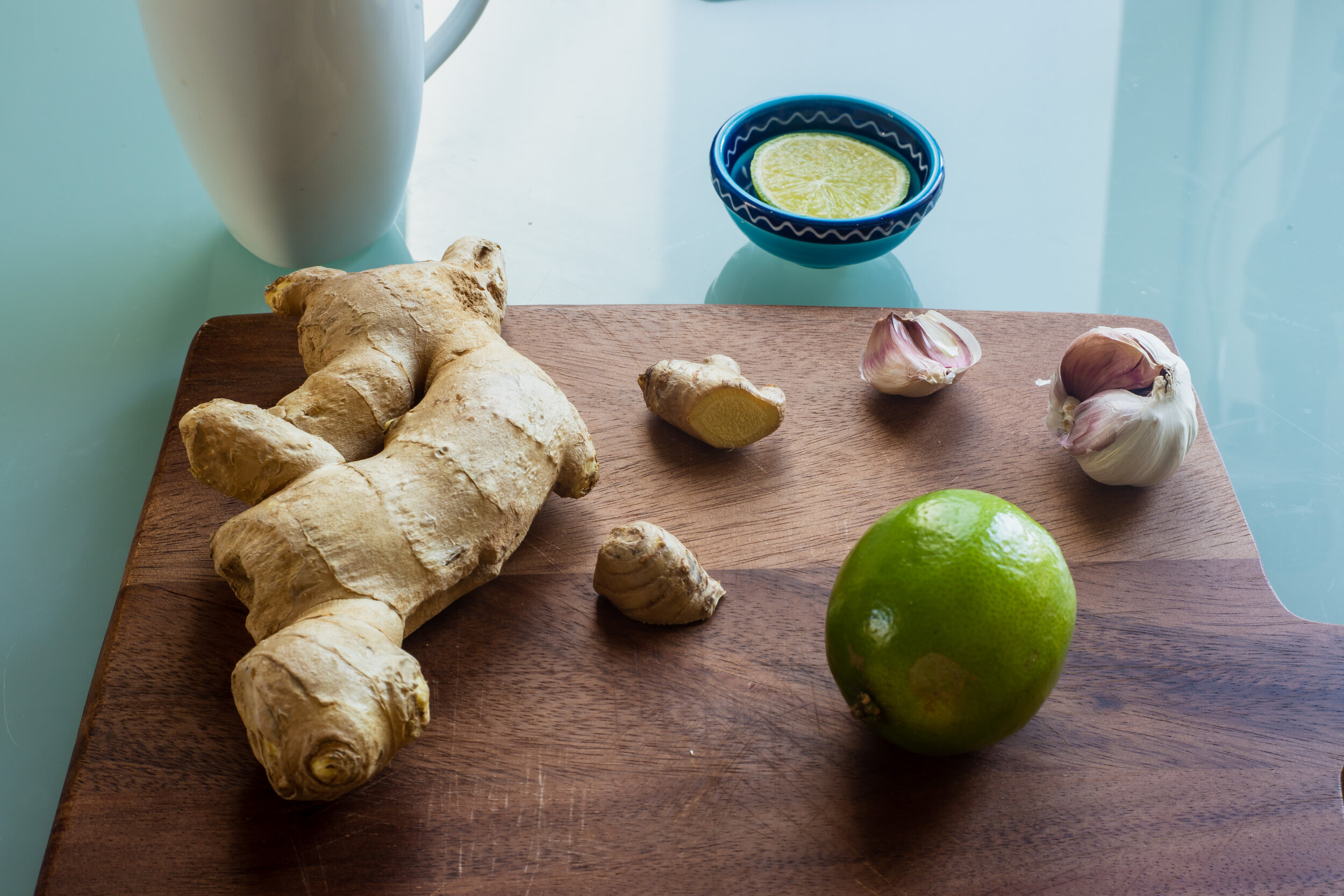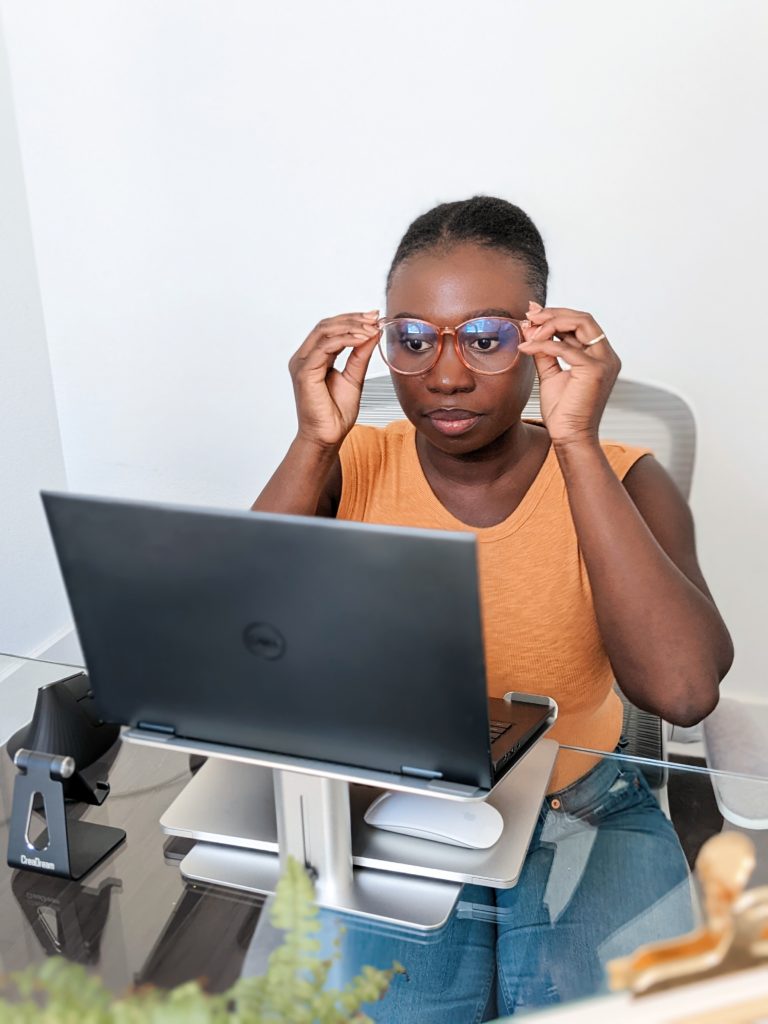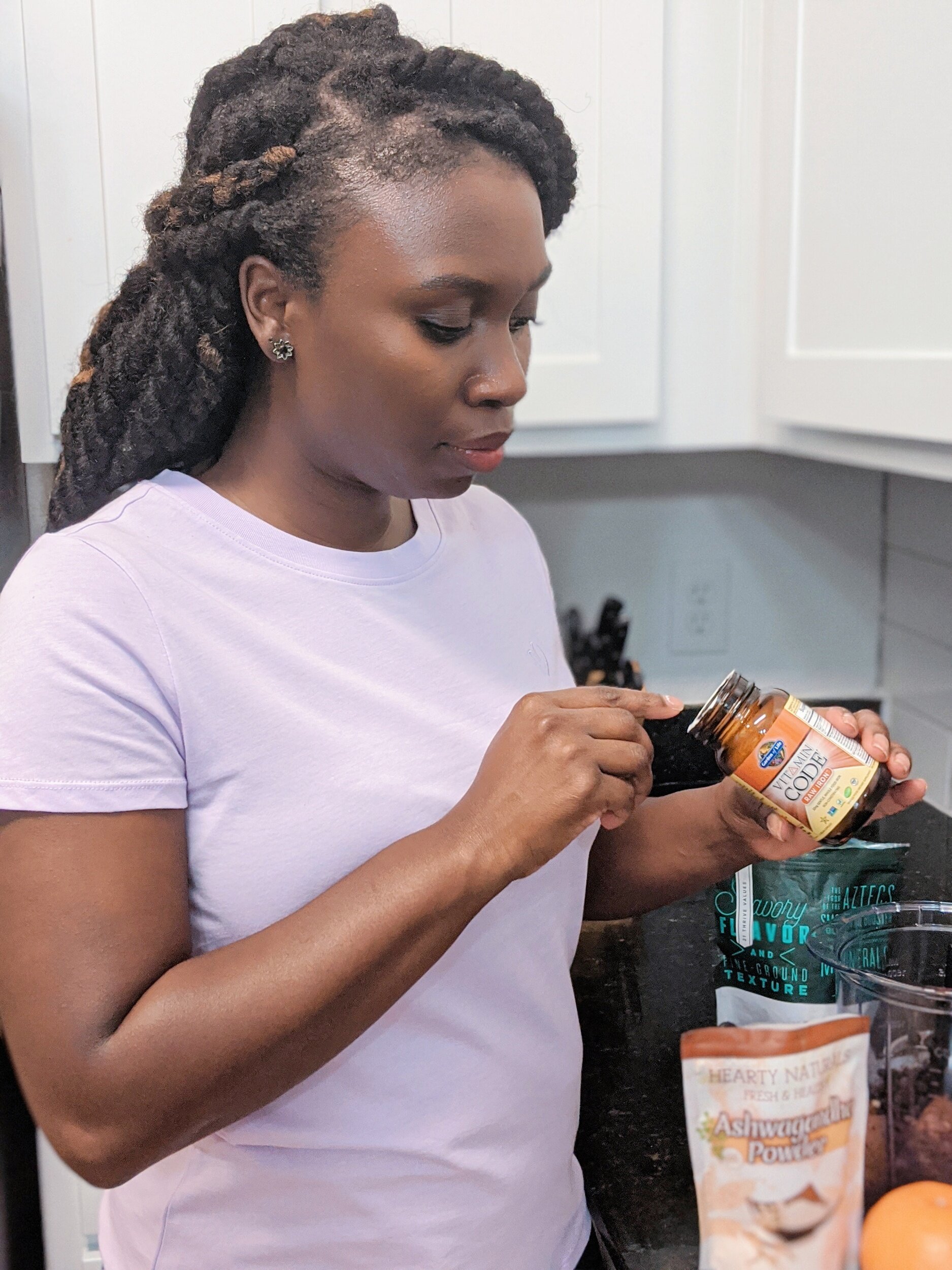Using Acupuncture for Menstrual Cycle Pain: My Experience
Painful periods, or dysmenorrhea, can be a monthly struggle for many individuals. While conventional Western medicine offers various solutions, acupuncture is an alternative approach that’s growing in popularity.
As someone who’s used acupuncture treatment in my journey, I can tell you that it was helpful for me in so many ways, including minimizing period pain. In fact, seeing an acupuncturist kicked off my journey of having better periods and shrinking fibroids.
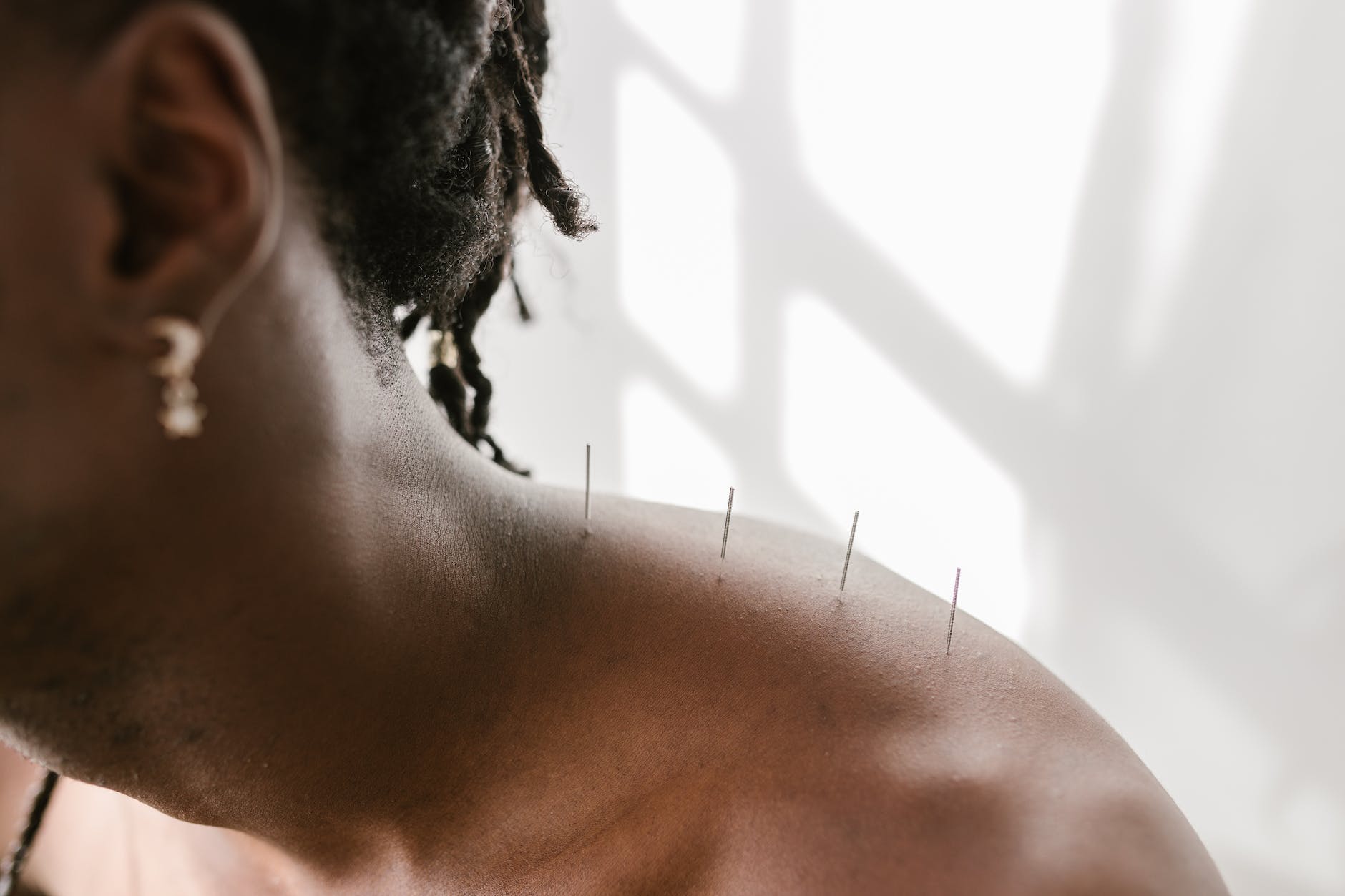
But before I get into my own experience with using acupuncture for menstrual cycle issues and painful periods, let me start by helping you understand this ancient practice, its potential benefits, and what to consider when seeking an acupuncturist.
What is acupuncture?
Acupuncture is a traditional Chinese medicine technique that involves the insertion of thin needles into specific points of the body. These points, known as acupuncture points, are believed to regulate the flow of energy or Qi (pronounced “chee”) in the body.
The goal of acupuncture is to restore balance and promote overall health.
It may seem unconventional and hokey to some, but acupuncture has been practiced for thousands of years. It’s recognized for its effectiveness in managing various health conditions, including pain management, fertility issues, and irregular periods.

Start Tracking Your Cycle
Subscribe to have tips delivered straight to your inbox!! PLUS get a cycle tracker!
What causes painful periods?
Painful periods can be attributed to several factors, including hormonal imbalances and inflammation. For some individuals, conditions like fibroids, endometriosis, or Polycystic Ovary Syndrome (PCOS) may exacerbate menstrual pain. Stress levels and lifestyle factors can also play a role in the severity of menstrual cramps.
Before I keep going, I need to note that although painful and irregular menstrual cycles have become extremely common, they’re NOT normal. If you’ve been around here for a long time, then you know I feel passionately about this. Ok, mini rant over. Back to why you should consider acupuncture for menstrual cycle issues.
Can acupuncture help with painful periods and irregular cycles?
Some studies and anecdotal evidence indicate that acupuncture can reduce the intensity and duration of menstrual pain, providing a holistic approach to managing this common issue. In fact, according to this study, acupuncture might even be more effective than popping your go-to over-the-counter painkiller.
Moreover, acupuncture may help address irregular menstrual cycles by promoting better blood circulation and hormonal balance. While individual responses vary, many people report improvements in both pain levels and cycle regularity after incorporating acupuncture into their wellness routine.
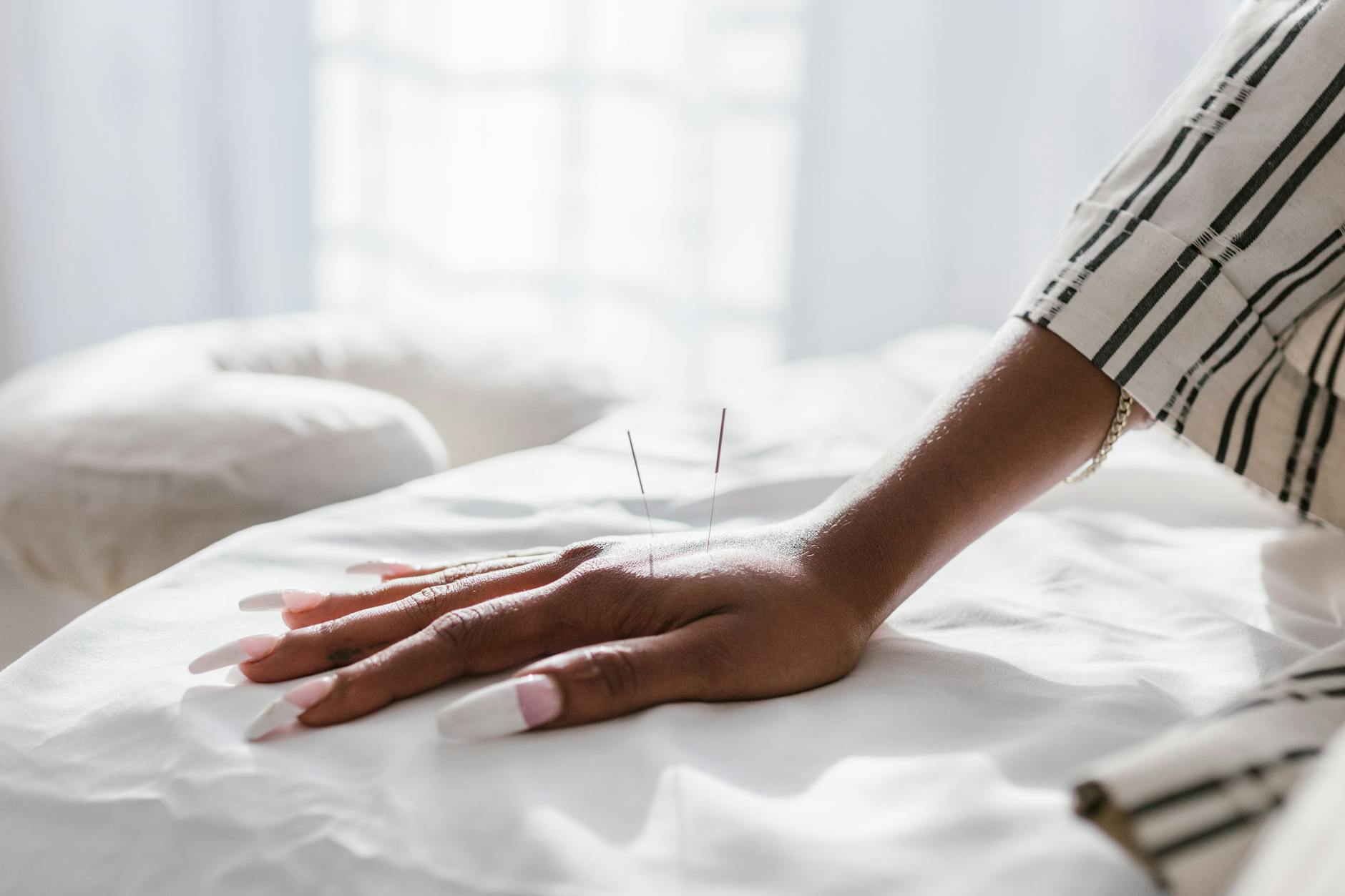
Three ways acupuncture helps with irregular menstruation.
- The practice is thought to stimulate the release of endorphins, the body’s natural painkillers.
2. Regulates the communication between the brain and ovaries to promote ovulation.
3. May encourage blood flow to the uterus and ovaries, which encourages the endometrial lining to form at the proper thickness.
My experience with Acupuncture for menstrual cycle issues.
As I mentioned earlier, I saw an acupuncturist when I first started working to shrink fibroids holistically. The practitioner I chose had lots of reviews from couples who had struggled with infertility. So, my gut feeling was that she’d be very knowledgeable about women’s reproductive health, and I was correct.
Not only did the acupuncture help drastically reduce my menstrual symptoms, but I immediately noticed an increase in energy levels and reduced brain fog. She taught me a lot about some principles in traditional Chinese Medicine and how I could use them to have better menstrual cycles even after treatment.
During my first acupuncture session, she assessed my current issues and even examined my tongue. She asked tons of questions about my life that helped her determine precisely how to treat me.
According to this practitioner, my emotional stress was causing me to have stagnant liver qi or stagnant energy. She educated me on some things I could do at home to improve my hormonal imbalances and the flow of energy in my body. She even recommended some herbs that would help me as well.
Although I did treatments twice a week for 12 weeks, I noticed a difference pretty much immediately. I experienced less brain fog and noticed an increase in energy. During my first menstrual cycle after I started seeing her, I even had an experience that I believe to be me passing some fibroid tissue. (I plan to write more on this later.) Before working with her I was able actually to feel several fibroids on the outside of my uterus. After treatment, I could no longer feel them.
And as someone who’s always had heavy and painful menstrual periods, I also noticed a significant reduction in the luteal phase of PMS symptoms and bleeding by the second menstrual cycle I had after starting treatment.

What to look for in an acupuncturist.
Choosing the right acupuncturist is essential for a positive experience and optimal results. Consider the following factors when selecting a practitioner:
- Type of experience: Choose someone well-versed or specialized in women’s reproductive issues. Usually, this will look like someone who works with many clients for infertility treatment.
- Time practicing: Ask about the length of time they’ve been in practice.
- Use of other techniques: Ask if they use other techniques. During my sessions, my acupuncturist used other techniques, like acupressure and cupping, as she deemed necessary.
- Look for success rates. Ask specific questions about the results the practitioner has gotten their clients. This is where testimonials and reviews come in handy.
- Go with your gut. One of the most essential factors is working with someone who makes you feel comfortable and fits your personality so there’s open communication.
- Ensure that the acupuncturist is licensed and accredited. Look for certifications from reputable organizations, and don’t hesitate to ask about their education and training.
- Effective communication: Choose an acupuncturist who listens to your concerns, explains the process clearly, and makes you feel comfortable throughout the sessions.
Are there any risks of using acupuncture?
As long as you’re working with a licensed professional, acupuncture has minimal risk. Some reactions can include dizziness, pain, discomfort, bleeding or bruising. There is also a risk of infection. However, these adverse events can be avoided by using a qualified practitioner who uses sterile disposable acupuncture needles. It is also important to disclose your medical history and communicate openly before and during your appointment.
While acupuncture may not be a cure-all, it has shown promise in alleviating the discomfort associated with painful periods and irregular cycles.
As with any alternative therapy, it’s crucial to approach it with an open mind and consult with healthcare professionals. If you decide to explore acupuncture for menstrual cycle symptoms, finding a qualified and experienced practitioner can make a significant difference in your overall well-being.

